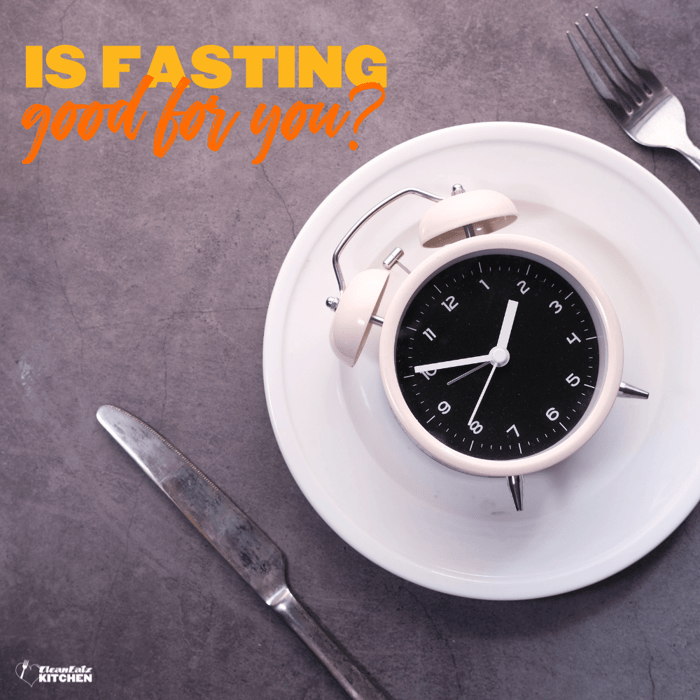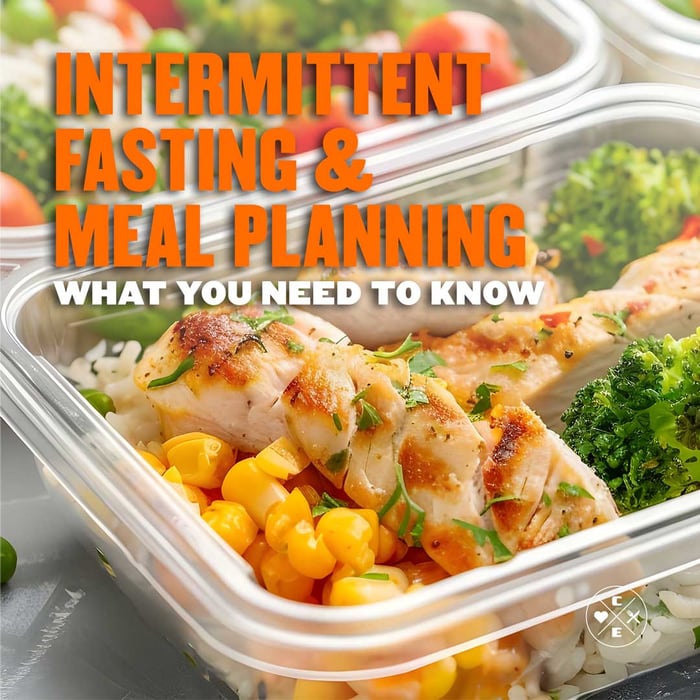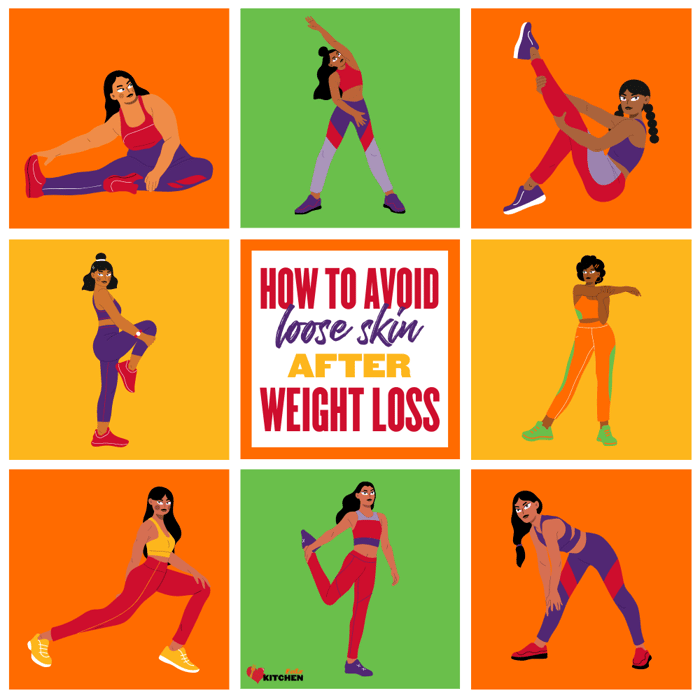Is Fasting Good for You? Benefits, Risks & How to Try It Safely

Ellie Lopez, LDN, MS
Weight Loss
|
Healthy Lifestyle
01/01/2026 7:19am
11 minute read
Quick Answer: Intermittent fasting (IF) can help some people lose weight and improve certain metabolic markers—mostly because it makes it easier to eat fewer calories. In trials, IF performs about as well as traditional calorie reduction, not better. It isn't magic, and it's not appropriate for everyone (including during pregnancy, with certain medical conditions, or for people with a history of eating disorders). If you try it, keep protein high, choose fiber-rich foods, and stop if you feel unwell.
On this page:
- What fasting is (and isn't)
- Does fasting work for weight loss?
- Potential benefits & common risks
- Who should avoid fasting or talk to a clinician first
- How to try fasting safely (if you choose to)
- Sample day: time-restricted eating (16:8) done right
- What to eat from Clean Eatz Kitchen
- FAQ
What Fasting Is (and Isn't)
Intermittent fasting structures when you eat, not necessarily what you eat. The idea is that by limiting your eating window, you naturally consume fewer calories and give your body extended time between meals. Here are the most common approaches:
Time-restricted eating (TRE): You eat within a daily window—often 8 to 10 hours—and fast the rest of the day. The popular "16:8" method means fasting for 16 hours and eating during an 8-hour window.
5:2 diet: You eat normally five days per week and restrict calories to around 500–600 on two non-consecutive days.
Alternate-day fasting (ADF): You alternate between low-calorie "fast" days and regular eating days.
What matters most isn't the specific protocol—it's whether you can stick with it while still eating nutritious food. Success depends on overall food choices, protein and fiber intake, sleep quality, stress management, and physical activity. The clock alone won't transform your health.
For a deeper dive into how to structure your meals during eating windows, see our comprehensive guide: Intermittent Fasting and Meal Planning: What You Need to Know.
Does Fasting Work for Weight Loss?
The short answer: it can, but it's not superior to other approaches. Here's what recent research tells us:
Comparable to calorie counting: Reviews and clinical trials consistently find that intermittent fasting leads to similar weight loss and cardiometabolic improvements as continuous calorie restriction when total calories are matched. A 2022 systematic review confirmed that IF doesn't outperform standard dieting for weight loss.
No magic in the timing: A 12-month trial published in the New England Journal of Medicine found that an 8-hour eating window did not beat daily calorie restriction for weight loss when calories were controlled.
Long-term questions remain: A 2024 analysis presented at the American Heart Association found an association between very short eating windows (under 8 hours daily) and higher cardiovascular mortality risk. However, this observational study can't prove cause and effect—people who choose extreme fasting schedules may differ from the general population in ways researchers couldn't measure. This finding does not mean that time-restricted eating causes harm. Rather, it suggests that extreme or poorly planned fasting patterns may coexist with other health-risk behaviors or underlying health conditions that were not fully accounted for in the analysis. The takeaway: moderation matters, and if you have heart disease or cancer, discuss any fasting plan with your clinician first.
The bottom line on weight loss? IF works for some people because it simplifies eating decisions and naturally reduces calorie intake. If counting calories feels tedious but skipping breakfast doesn't bother you, fasting might be a helpful tool. But it's one approach among many—not a metabolic miracle.
Potential Benefits & Common Risks
Potential Benefits
Simplicity: Fewer eating occasions can reduce mindless snacking and decision fatigue. Some people find it easier to follow "don't eat until noon" than to track every calorie.
Modest metabolic improvements: When weight comes down, some people see improvements in triglycerides, LDL cholesterol, insulin sensitivity, and blood pressure. A 2025 network meta-analysis found that modified alternate-day fasting showed the strongest effects on cardiovascular risk factors—but the benefits were tied to weight loss, not fasting itself.
Behavioral structure: Having clear "eating" and "not eating" times can help people develop more mindful eating habits and break patterns of late-night snacking.
Common Risks and Downsides
Hunger and low energy: Especially at the start, fasting can cause irritability, difficulty concentrating, and fatigue. These symptoms often improve as your body adjusts, but they're real obstacles for many people.
Overeating in the window: If you're ravenous when your eating window opens, you might consume more calories than you would have otherwise—negating any benefit. Planning balanced meals in advance helps prevent this.
Sleep disruption: Eating too close to bedtime or going to bed hungry can interfere with sleep quality. Experiment with your eating window timing to find what works for your sleep schedule.
Medication and blood sugar risks: People on insulin or sulfonylureas face hypoglycemia risks during fasting. If you take any medications, coordinate with your healthcare provider before starting IF.
Not safe for everyone: Fasting is contraindicated during pregnancy and breastfeeding, and it can trigger or worsen disordered eating patterns in susceptible individuals.
Who Should Avoid Fasting or Talk to a Clinician First
Intermittent fasting isn't for everyone. You should avoid fasting or get medical guidance first if you:
Are pregnant or breastfeeding: Your body needs consistent nutrition to support fetal development and milk production.
Have type 1 diabetes or type 2 diabetes on insulin or hypoglycemia-causing medications: Fasting can cause dangerous blood sugar drops. Any changes to eating patterns must be coordinated with your healthcare team.
Have a history of eating disorders or disordered eating: The restriction inherent in fasting can trigger or worsen unhealthy relationships with food.
Have chronic conditions or take medications requiring regular food intake: Some medications need to be taken with food, and certain chronic conditions—such as cardiovascular disease, gastrointestinal disorders, cancer, diabetes, or chronic fatigue–related conditions—may be aggravated by extended periods without eating. In fact, while intermittent fasting has shown improvements in some metabolic markers, particularly related to type 2 diabetes and cardiovascular risk, evidence remains limited and not conclusive for many chronic diseases, underscoring the importance of individualized medical guidance before trying fasting if you have an existing condition (Teong et al., 2021).
When in doubt, ask your doctor. A brief conversation can help you determine whether IF is appropriate for your situation.
How to Try Fasting Safely (If You Choose To)
If you've decided to experiment with intermittent fasting, here's how to set yourself up for success:
1. Start with a gentle window. You don't need to jump straight to 16:8. Try 12:12 (12 hours of eating, 12 hours of fasting) or 14:10 first. This often means just skipping late-night snacking and eating breakfast a bit later. Extreme windows aren't necessary and may increase health risks.
2. Prioritize protein and fiber. Aim for roughly 25–35 grams of protein per meal, plus plenty of vegetables, beans, and whole grains. Protein preserves muscle mass and keeps you full; fiber supports gut health and satiety. Without adequate protein, you risk losing muscle along with fat.
3. Stay hydrated. Water, unsweetened tea, and black coffee are fine during fasting windows. If you're training hard or it's hot out, consider adding electrolytes. Dehydration can worsen hunger and fatigue.
4. Keep moving. Don't "save" calories by skipping exercise. Aim for strength training at least twice per week to protect muscle mass, plus regular walking or other movement you enjoy. For detailed guidance, see our Complete Exercise Guide for Weight Loss.
5. Stop if something feels wrong. Dizziness, faintness, persistent fatigue, or mood disturbances are signals to pause and reassess. Fasting should feel manageable, not miserable. If it's not working for you, that's okay—there are many paths to better health.
Sample Day: Time-Restricted Eating (16:8) Done Right
Here's what a well-structured day might look like with a noon-to-8pm eating window:
10:00 AM (still fasting): Water, black coffee, or unsweetened tea.
12:00 PM — First meal: Greek yogurt bowl with berries and chia seeds, plus whole-grain toast. Aim for approximately 30g protein to break your fast with staying power.
3:30 PM — Lunch: A Clean Eatz Kitchen entrée with a side salad or roasted vegetables. Target 25–35g protein and add fruit for fiber and nutrients.
5:30 PM — Snack: Cottage cheese with pineapple, or hummus with bell peppers. This adds another 10–20g protein and bridges the gap to dinner without overeating.
7:30 PM — Dinner: Lean protein (chicken, fish, or tofu) with roasted vegetables and a serving of potatoes, brown rice, or quinoa. Another 25–35g protein rounds out the day.
Note: If mornings are your best training time, shift your window earlier (like 8am–4pm). The best eating window is the one you can stick with consistently while still sleeping well.
Need help planning meals that fit your fasting schedule? Our Complete Meal Prep Guide walks you through batch cooking and portioning strategies that make IF easier.
What to Eat from Clean Eatz Kitchen
Meal delivery can make intermittent fasting significantly easier. When your eating window opens and hunger hits, having a nutritious, portion-controlled meal ready to heat takes the guesswork out of the equation.
Build-A-Meal Plan — Design your own weekly meals with 25–35g protein per entrée. This ensures you're hitting protein targets even with fewer eating occasions.
Meal Plans — Pre-portioned, calorie-controlled options that take the stress out of meal planning. The Weight Loss Meal Plan is particularly well-suited for IF since portions are already optimized.
Cleanwich — A quick protein-packed option (20g+ protein) for busy days when you need to break your fast fast.
Frequently Asked Questions
Is fasting good for weight loss?
It can be—mainly because it helps some people reduce total calorie intake. Research shows results are similar to traditional calorie counting when calories are matched. Fasting isn't magic, but it can be an effective tool for people who prefer time-based rules over calorie tracking.
Is 16:8 intermittent fasting healthy?
For many adults, yes. The 16:8 method is one of the more moderate approaches and fits well with normal social eating patterns. That said, avoid pushing to more extreme windows, and make sure you're prioritizing protein, fiber, sleep, and physical activity. People with medical conditions should consult their healthcare provider first.
Who should not fast?
Pregnant and breastfeeding people should avoid fasting, as should anyone with a history of eating disorders. People with type 1 diabetes or those taking insulin or hypoglycemia-causing medications need medical supervision before attempting any form of fasting.
Does fasting boost metabolism?
No. Short-term fasts don't "rev up" your metabolism in any meaningful way. In fact, prolonged or aggressive calorie restriction can trigger adaptive thermogenesis, reducing energy expenditure over time. Metabolic health is better preserved by maintaining lean body mass through adequate protein intake and regular resistance training than by meal timing alone.
Can I work out while fasting?
Light to moderate exercise is usually fine during a fast if you feel good. For intense or prolonged sessions, many people perform better with some fuel beforehand. Pay attention to how you feel, stay hydrated, and don't push through dizziness or weakness. Experiment to find what works best for your body and training goals.
The Bottom Line
Intermittent fasting is a tool, not a miracle. For some people, it simplifies eating decisions and makes it easier to maintain a calorie deficit. For others, it triggers overeating, disrupts sleep, or simply doesn't fit their lifestyle. Neither outcome makes you a success or failure—it just means IF is or isn't the right approach for you.
If you're considering trying it, start gently, prioritize protein and fiber during eating windows, and pay attention to how your body responds. If you have any health conditions or take medications, talk to your doctor first.
Want to dive deeper into making IF work with proper nutrition? Read our comprehensive guide: Intermittent Fasting and Meal Planning: What You Need to Know.
For weight-loss-friendly foods that work well within any eating pattern, explore our Best Foods for Weight Loss Complete Guide.
Related Articles
How to Avoid Loose Skin After Weight Loss?
10 minute read
Is Coffee Good For Weight Loss?
6 minute read



